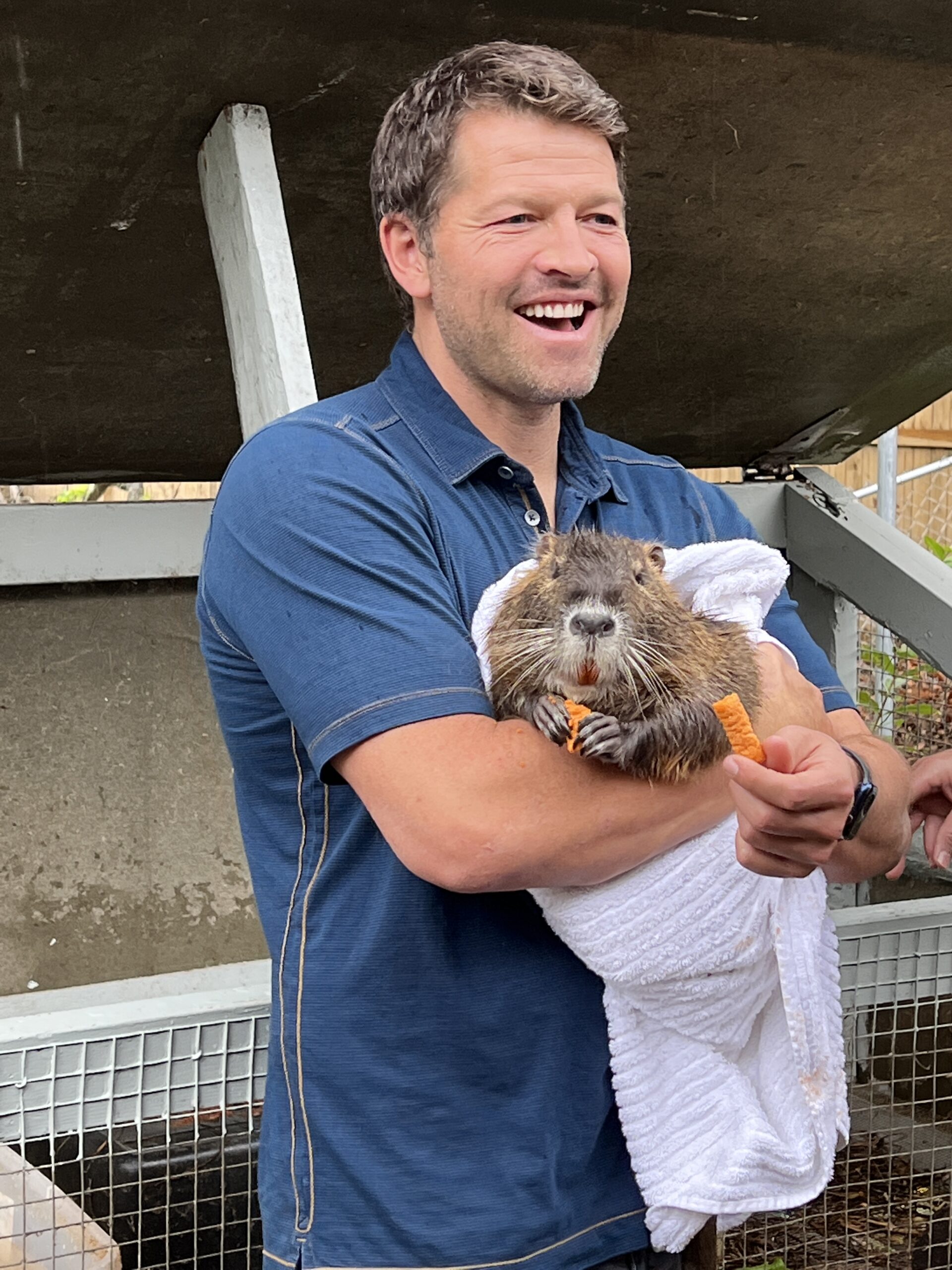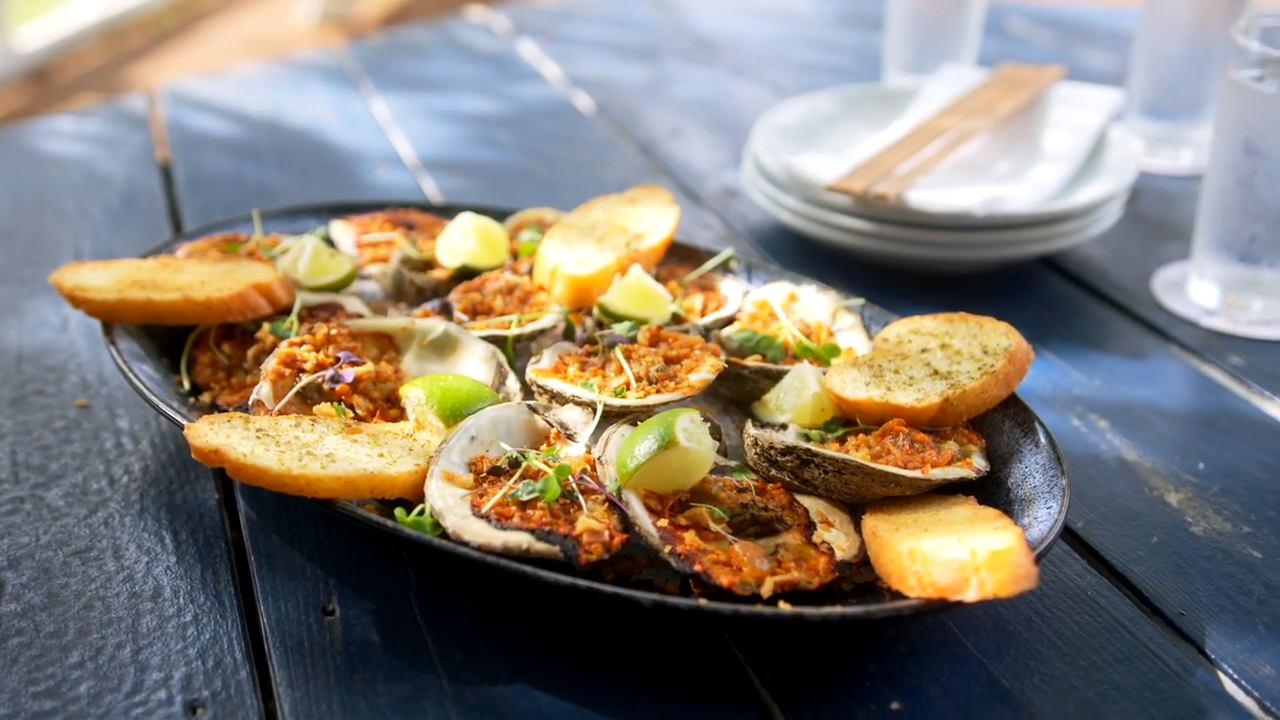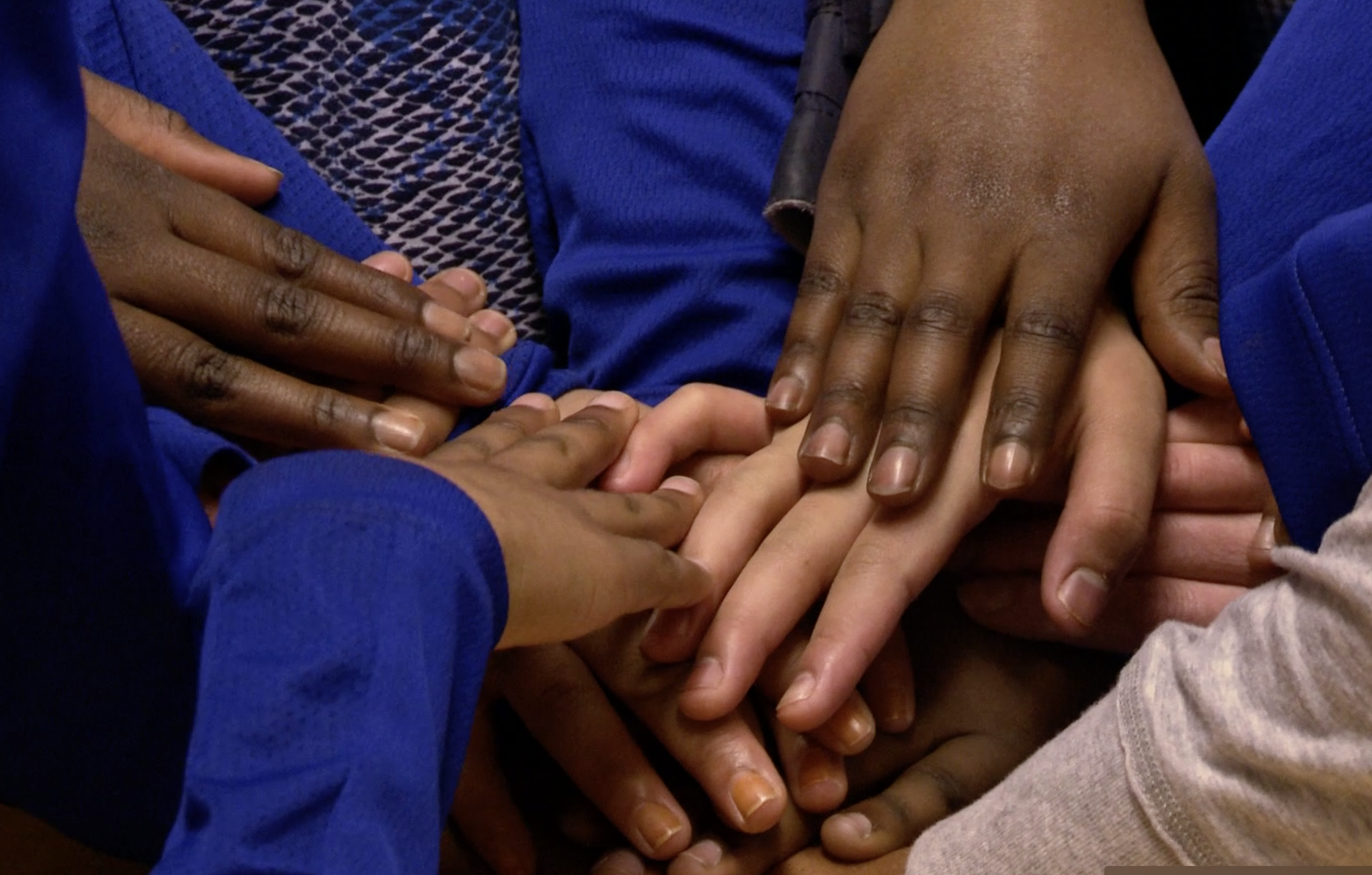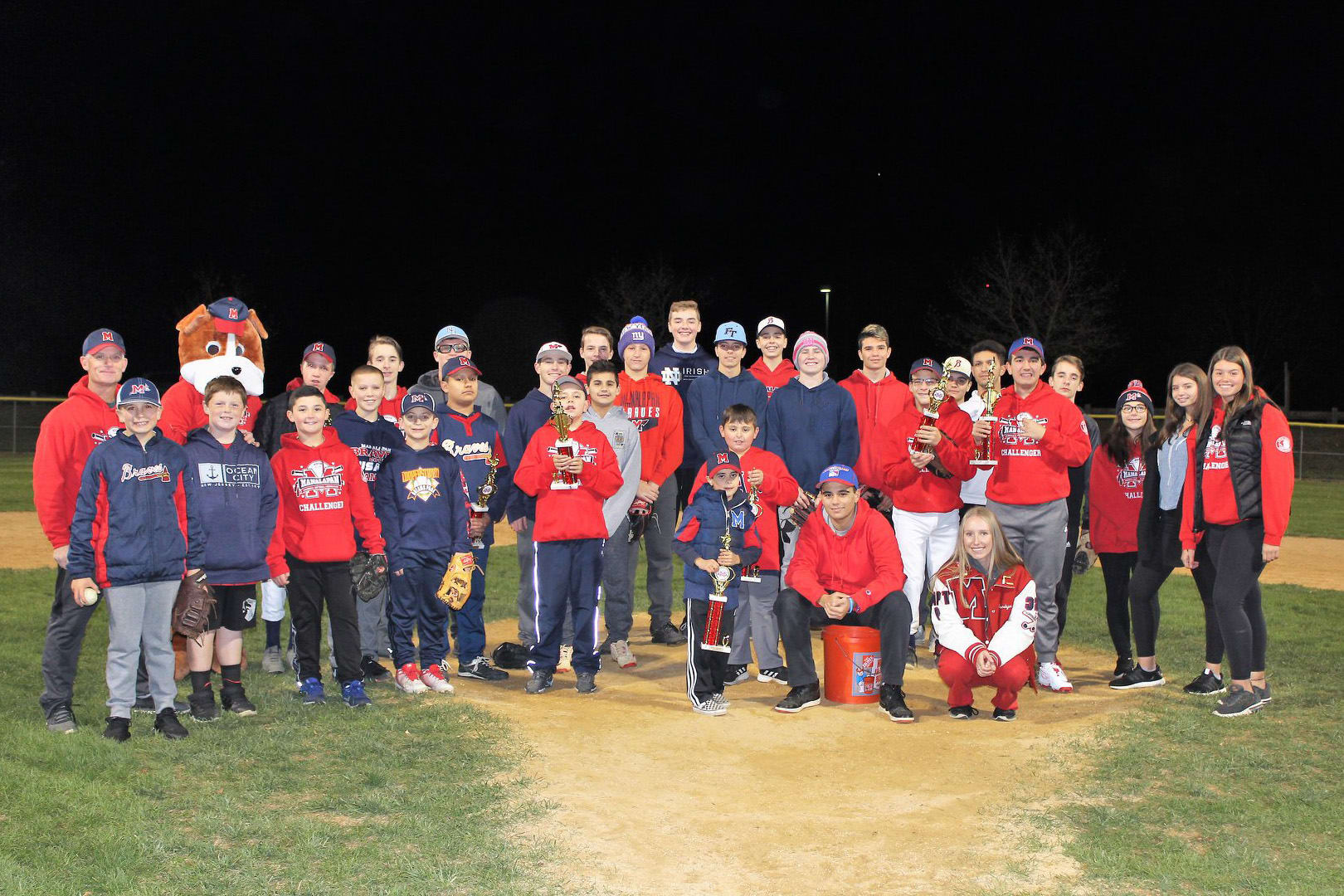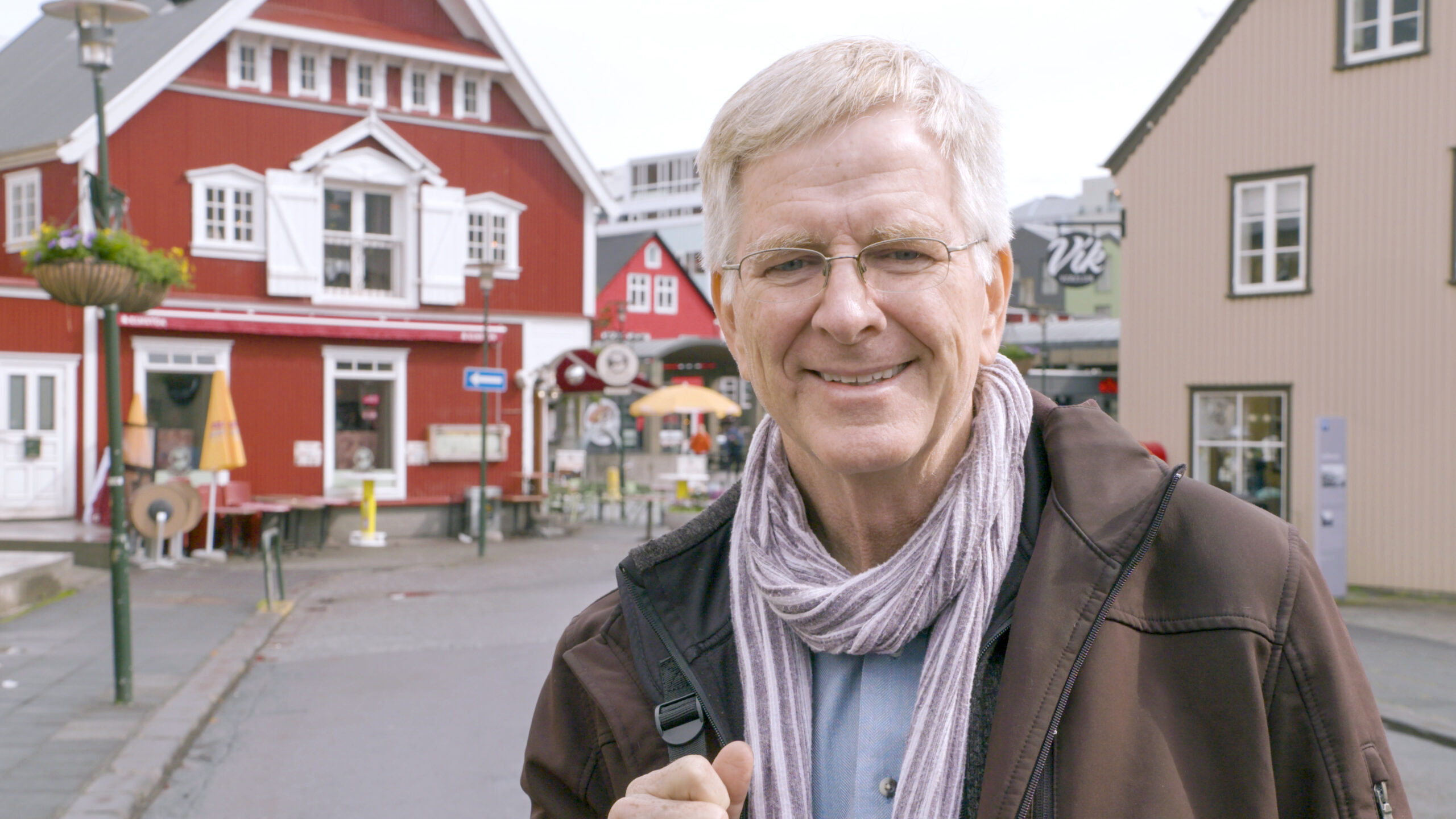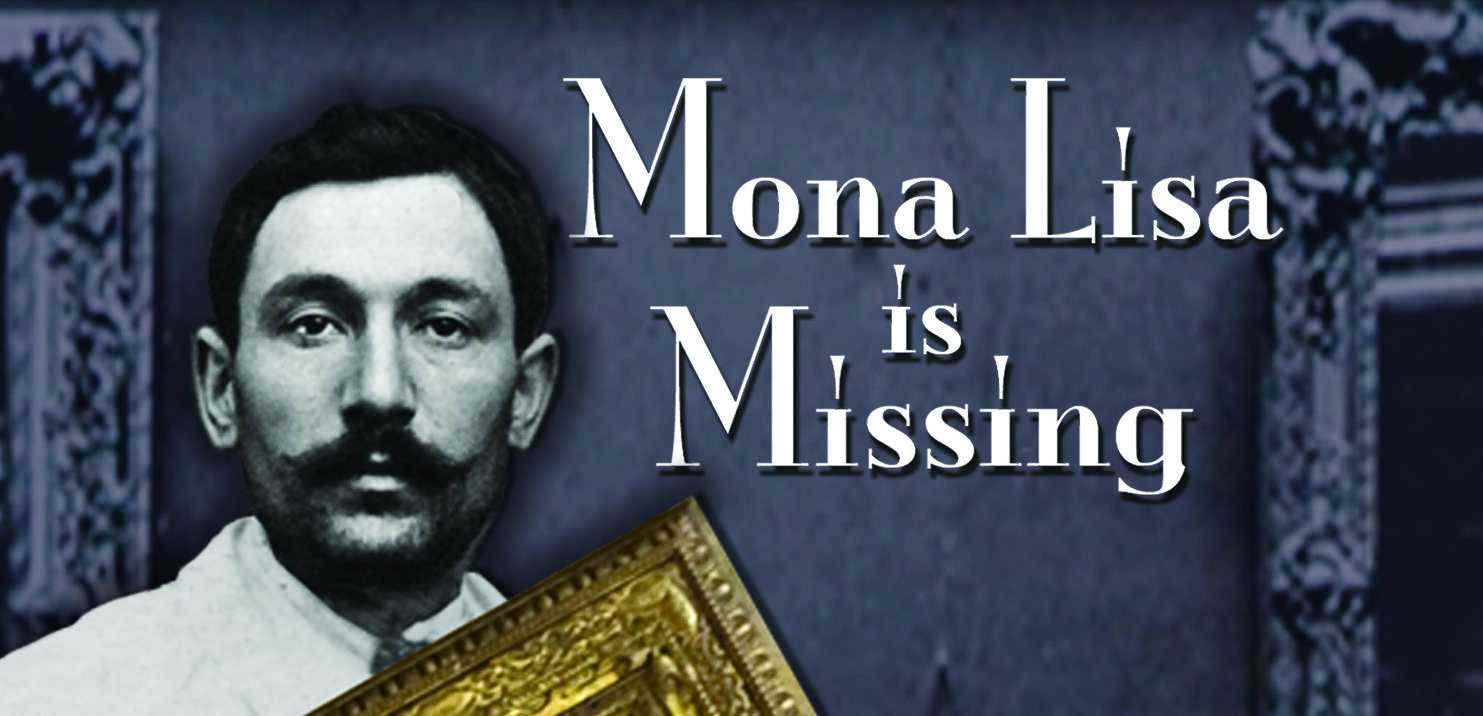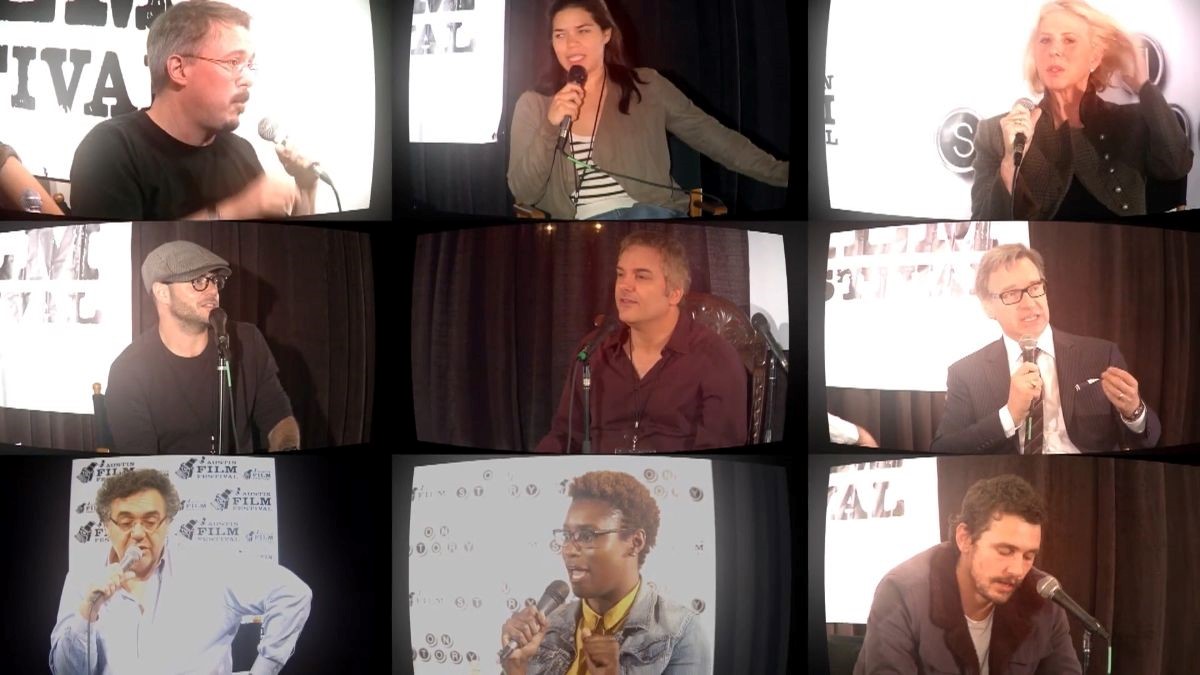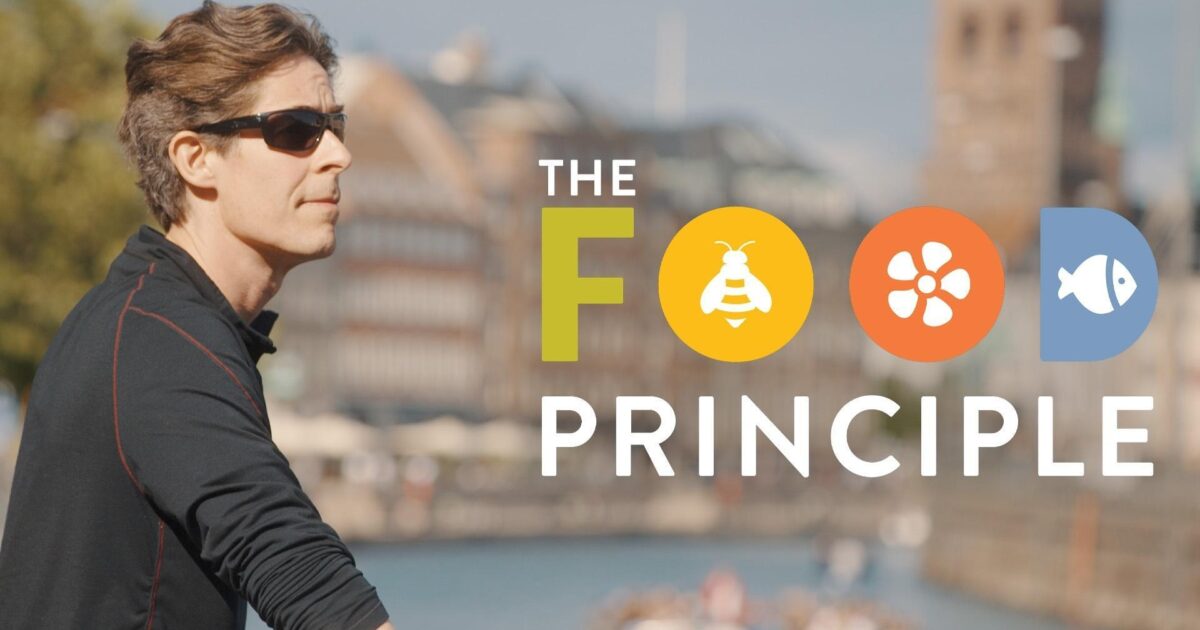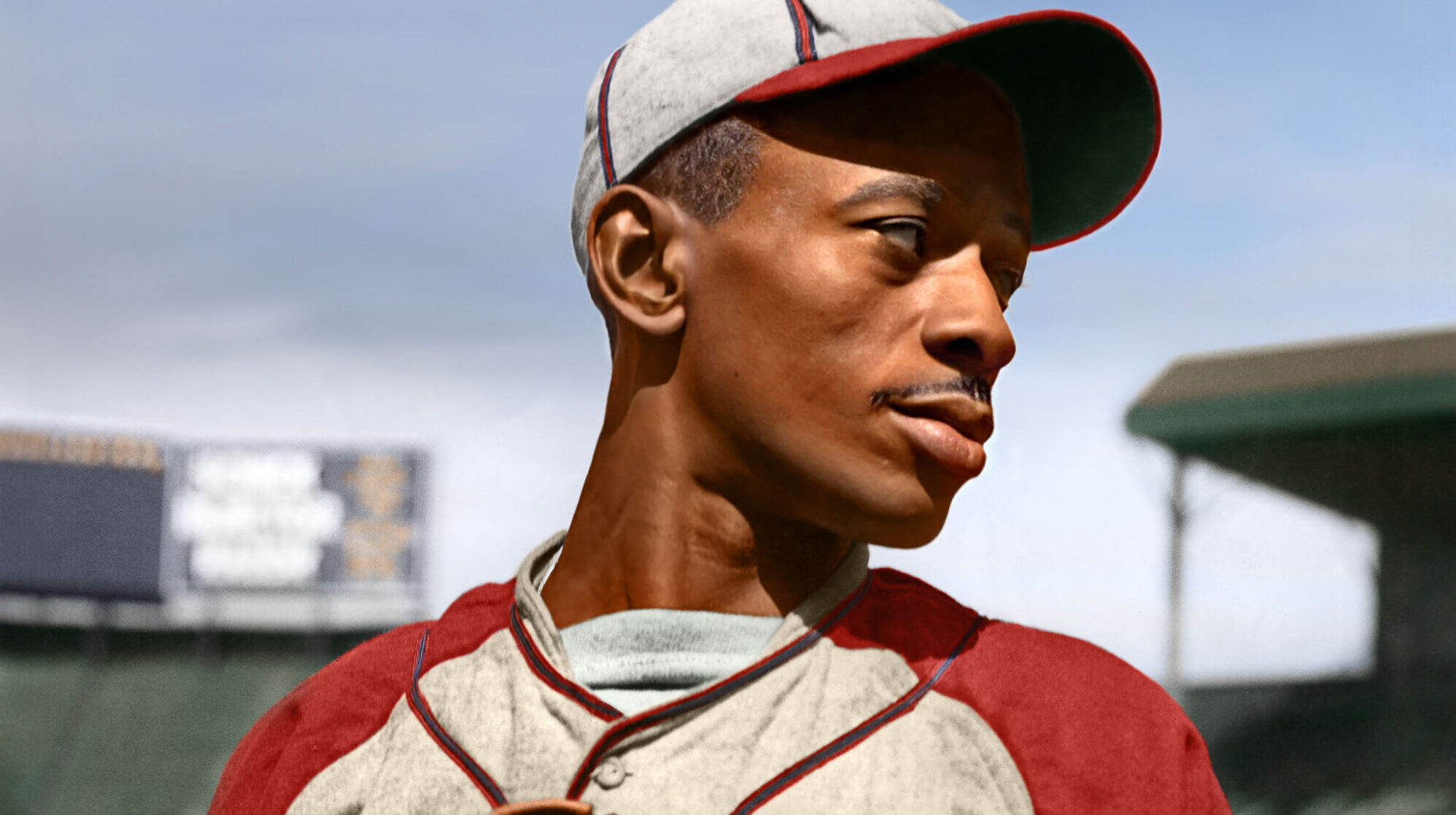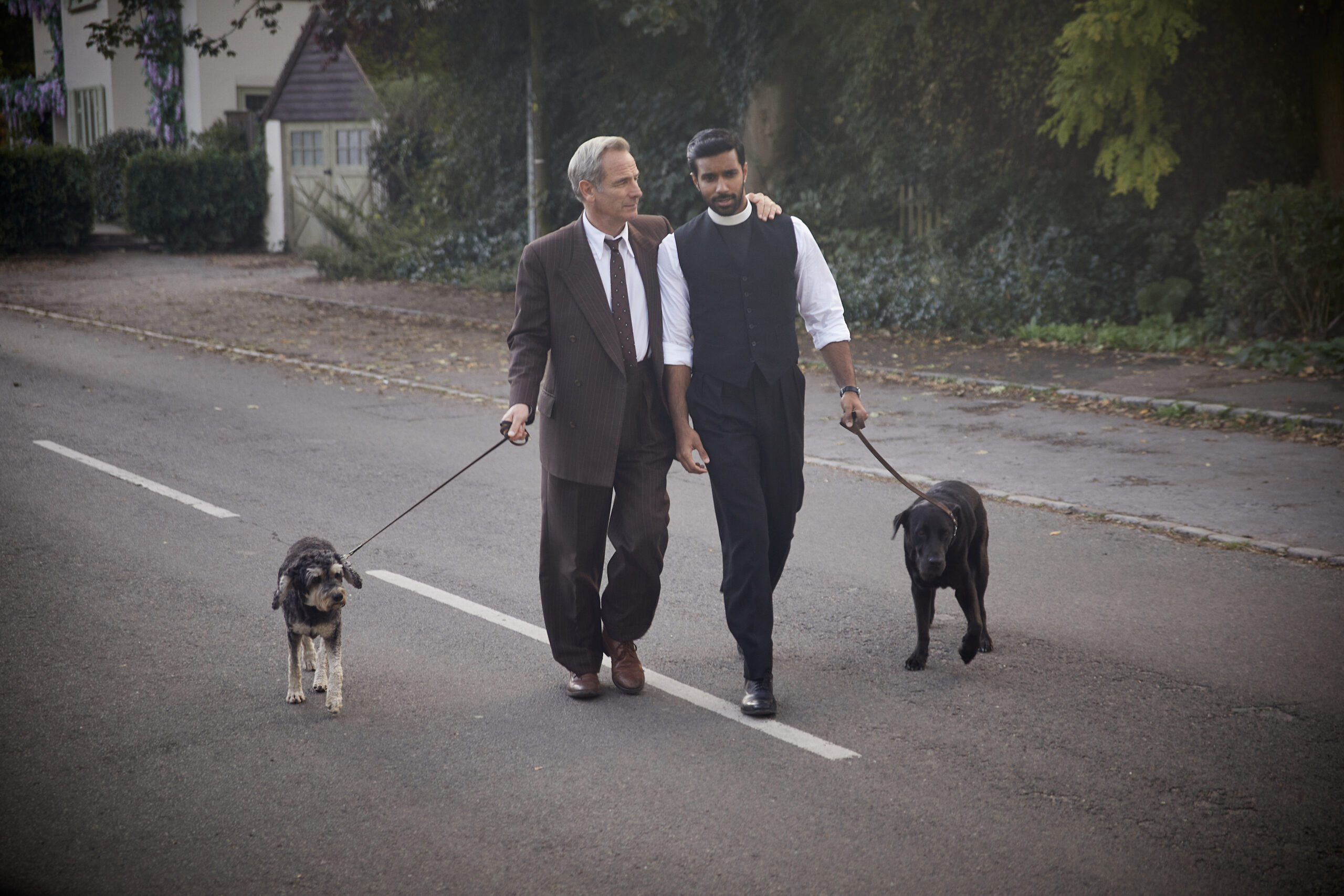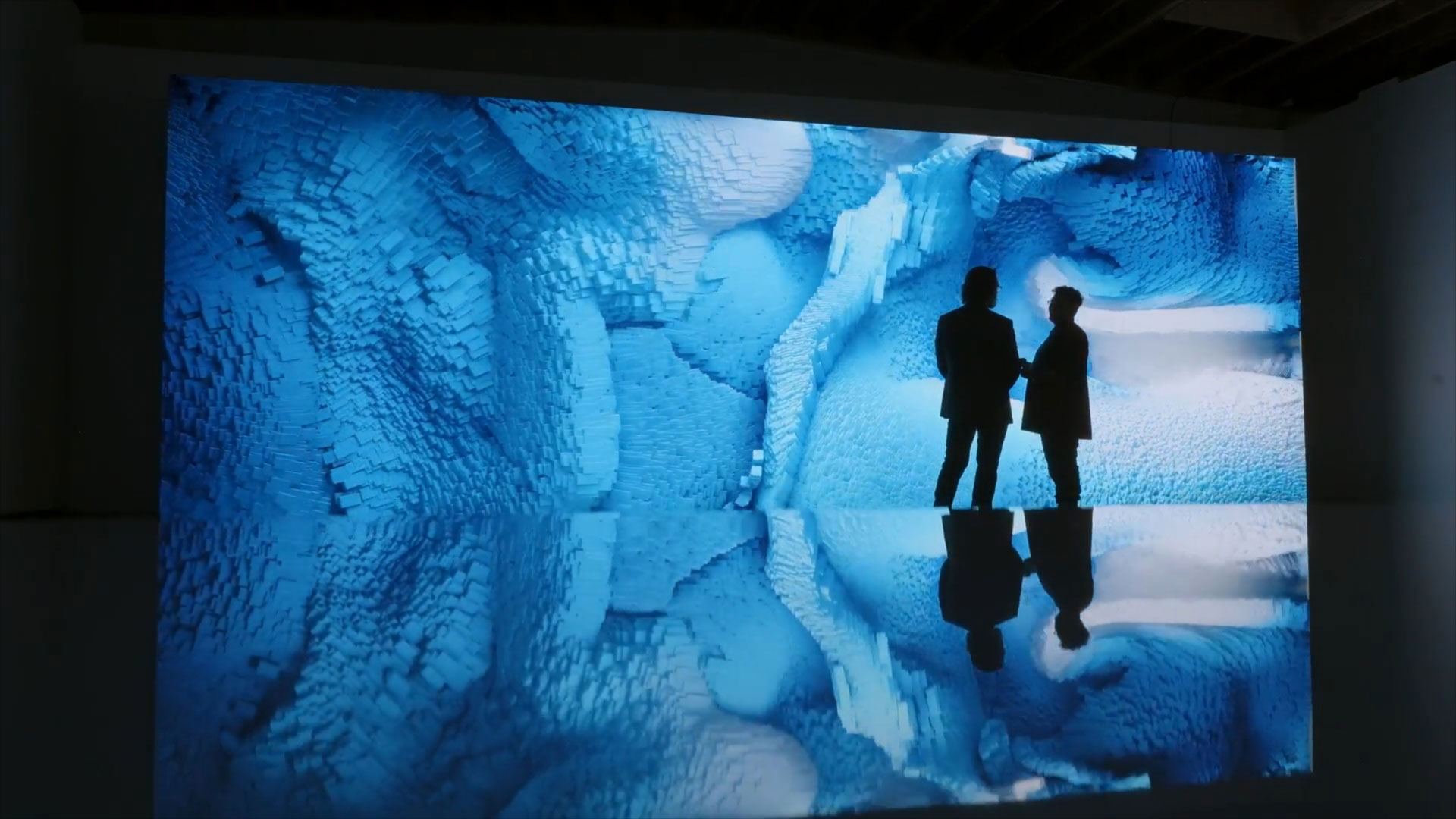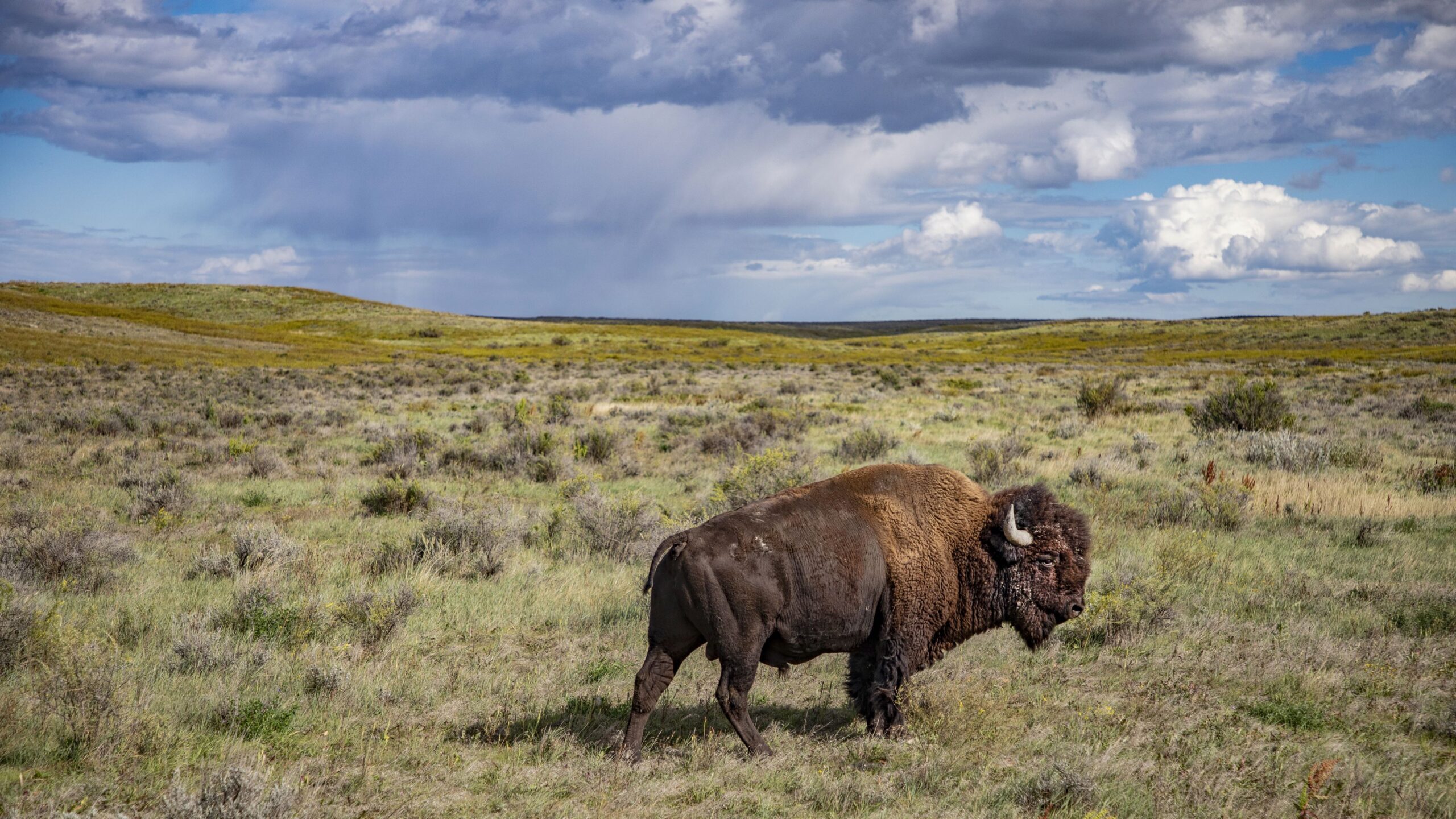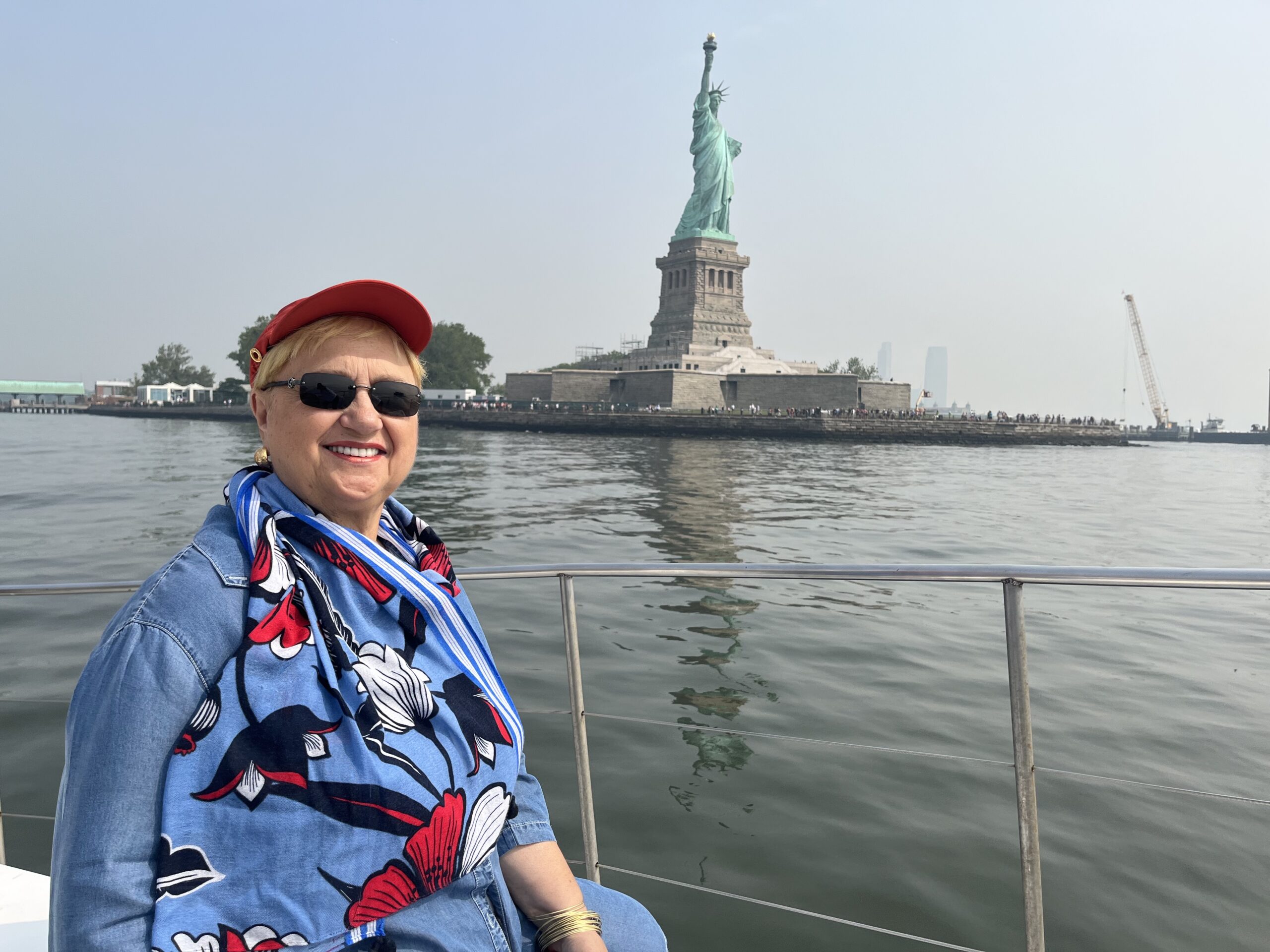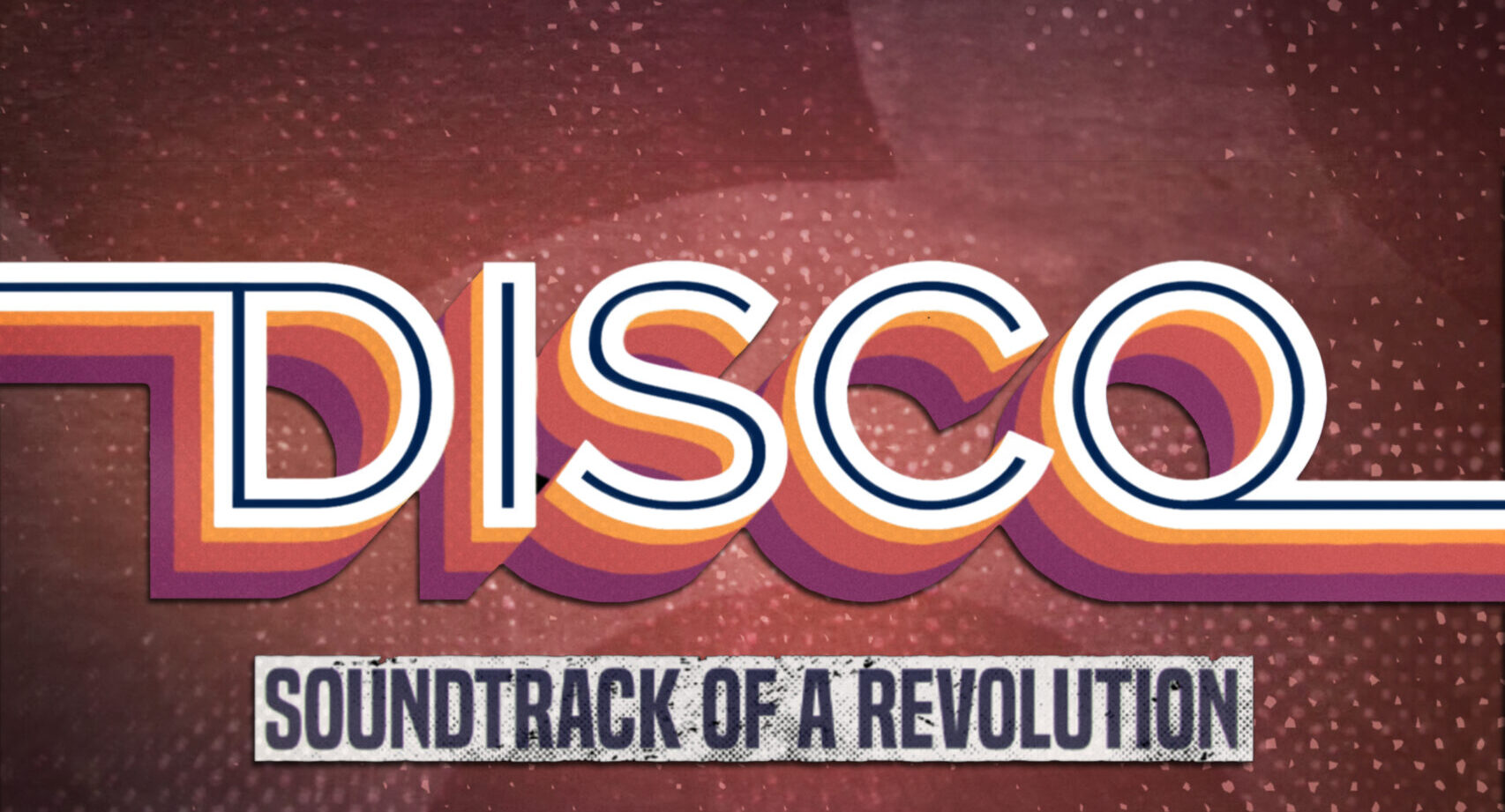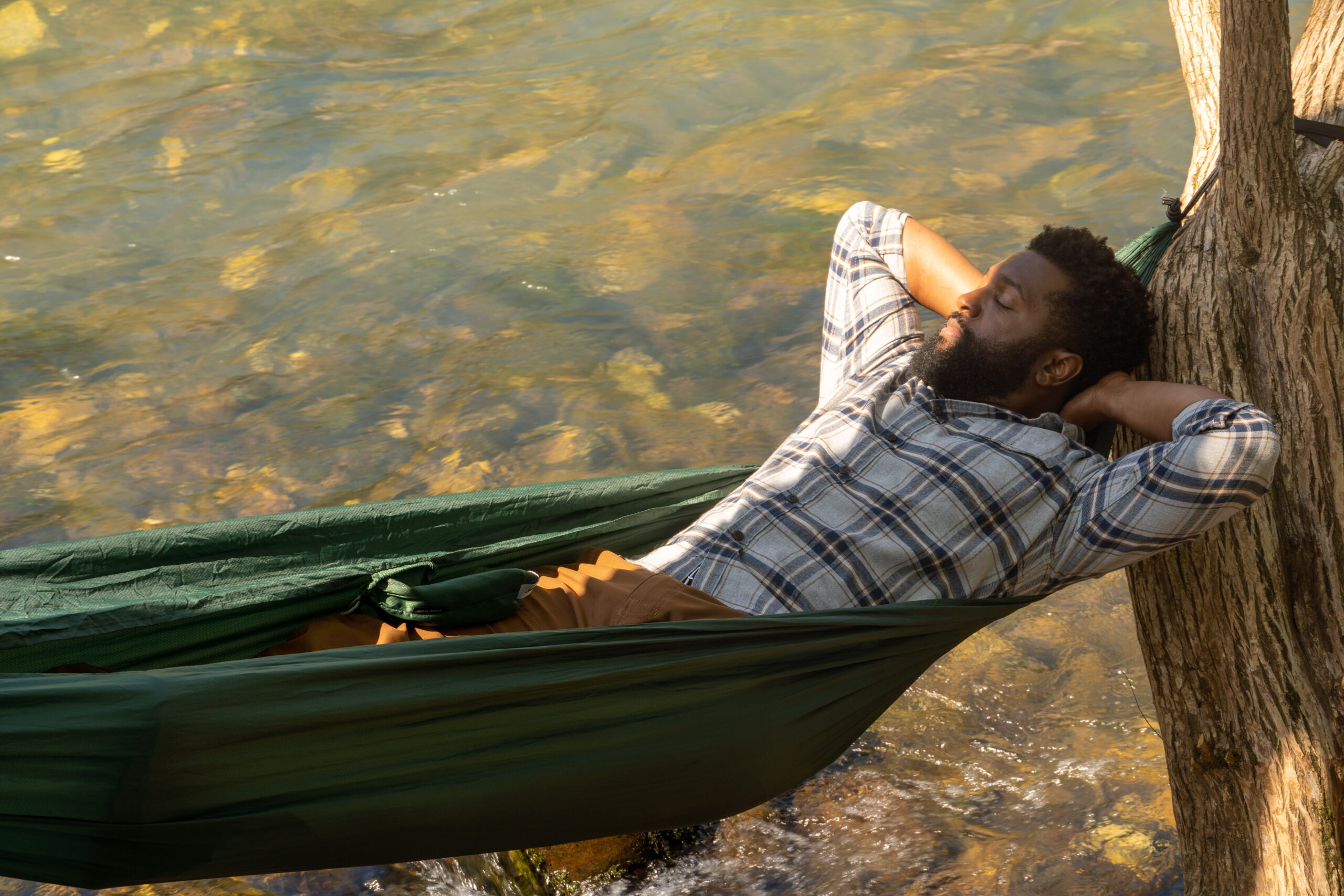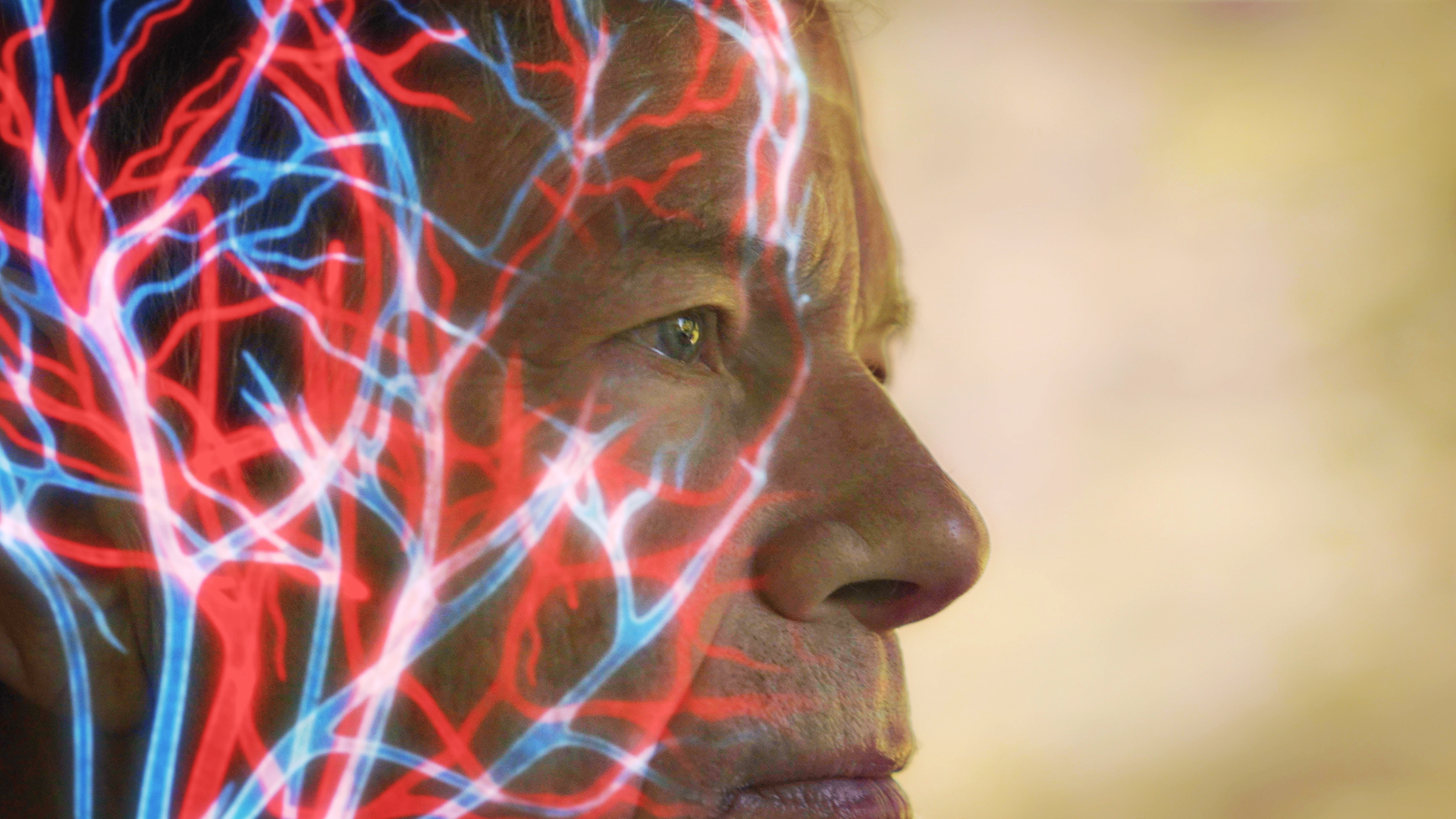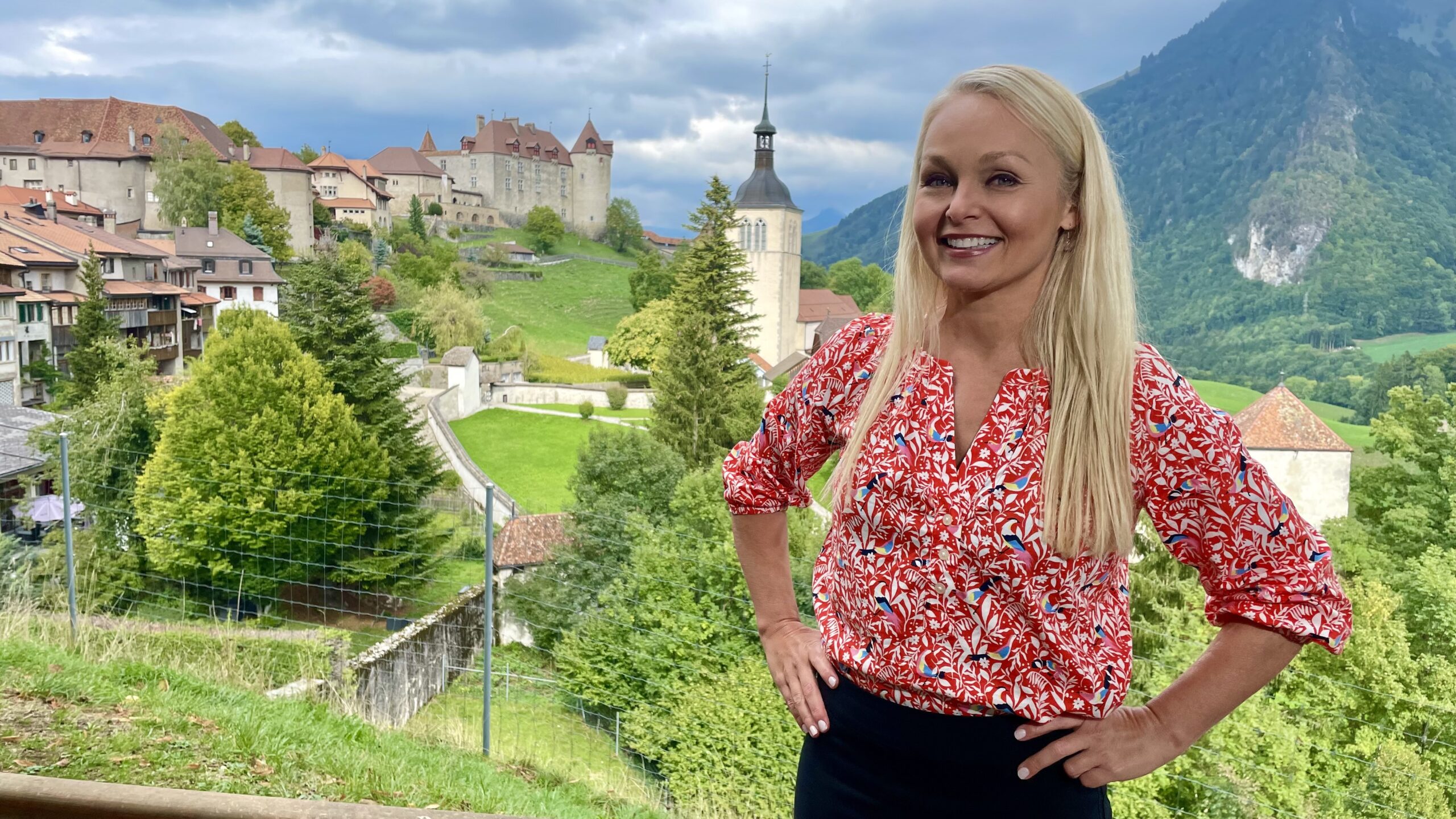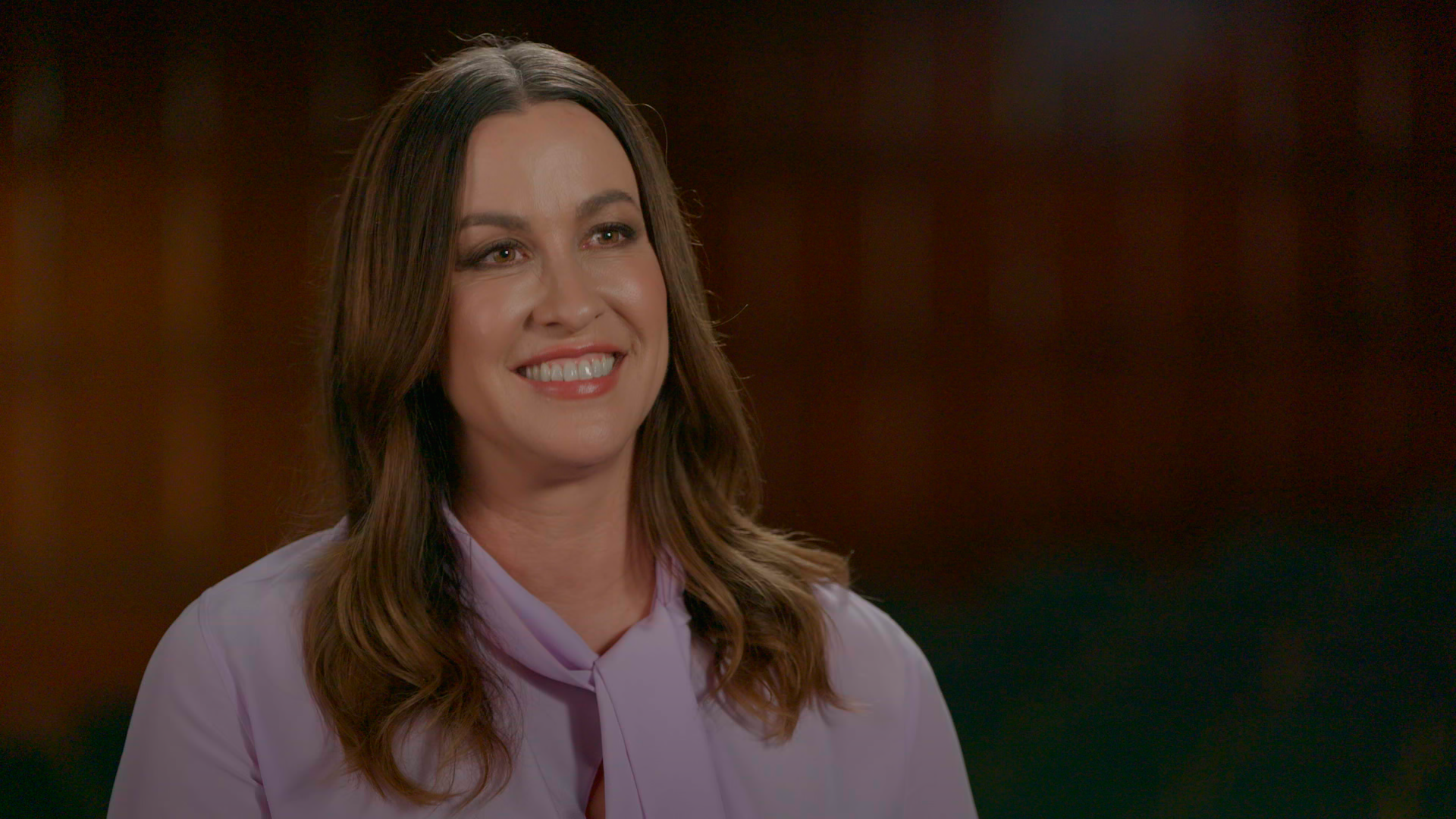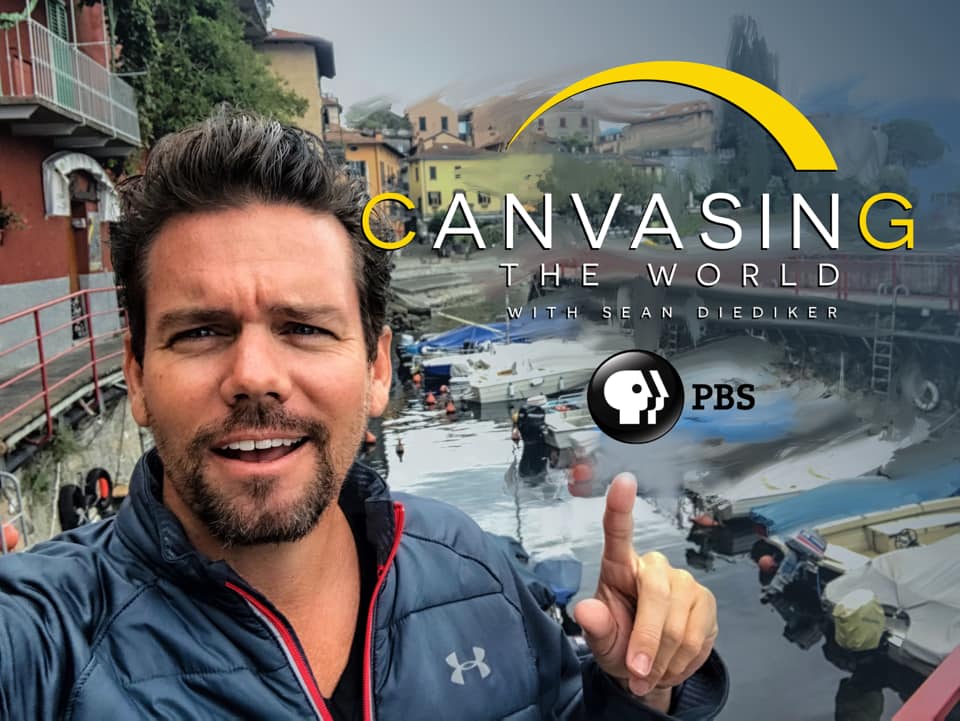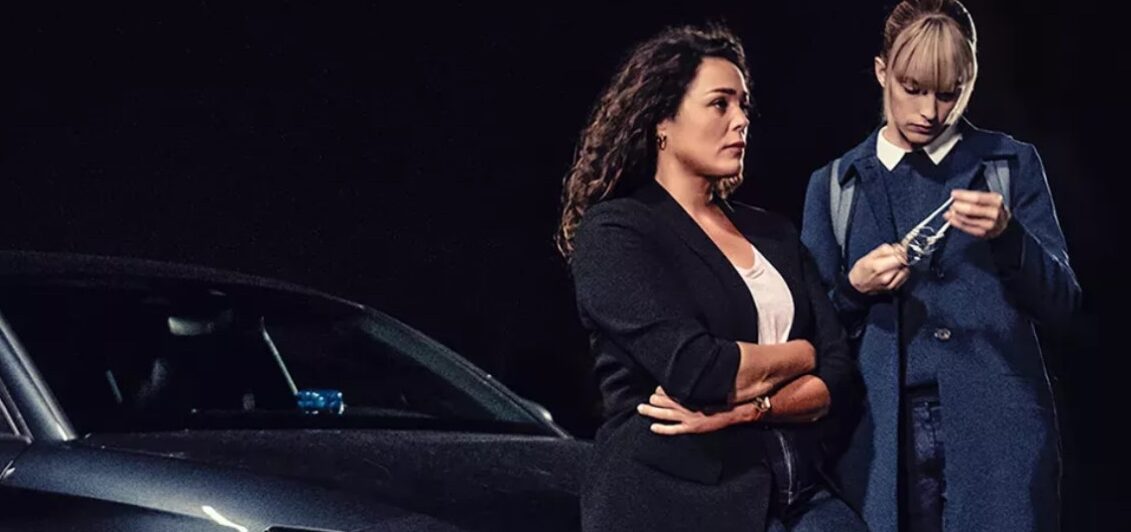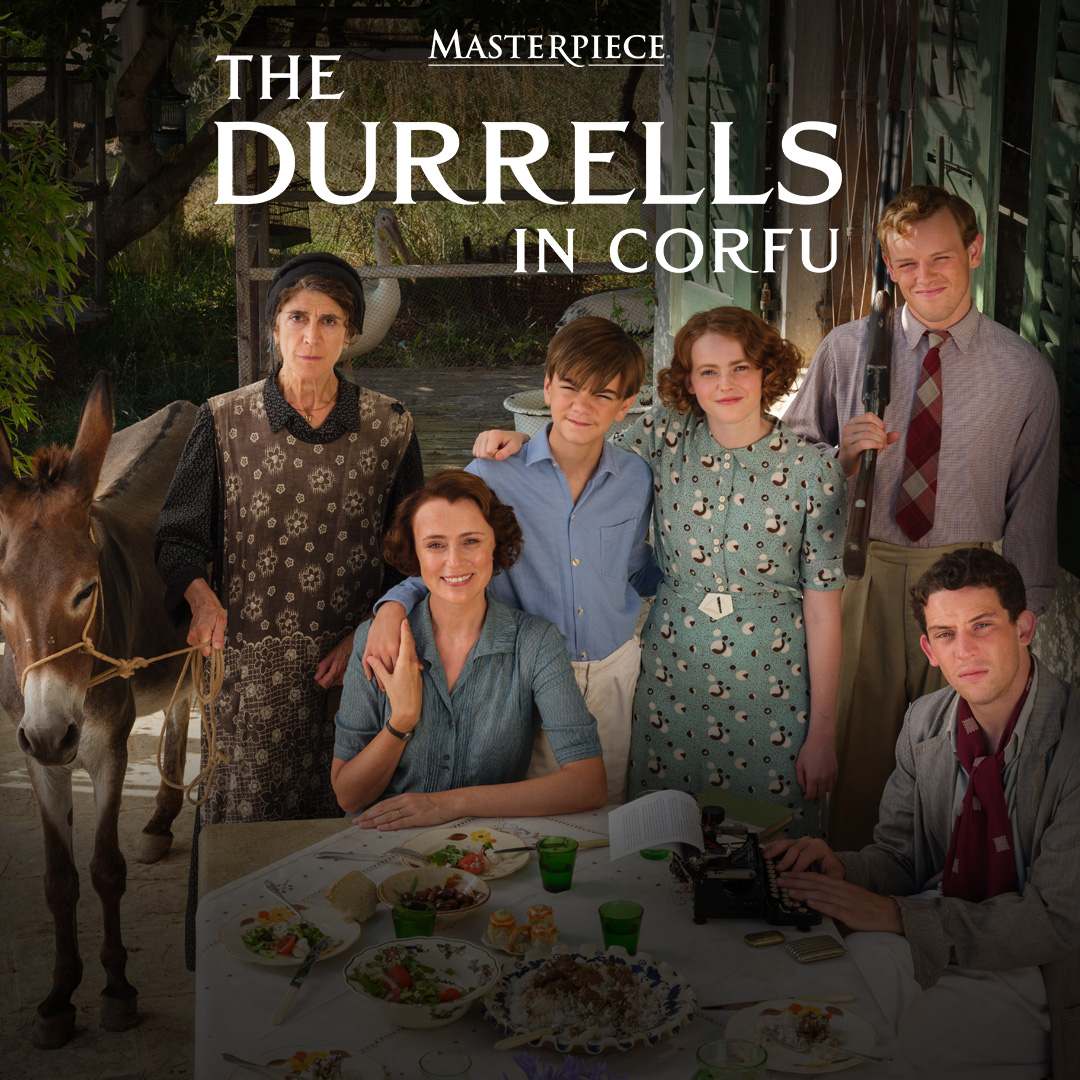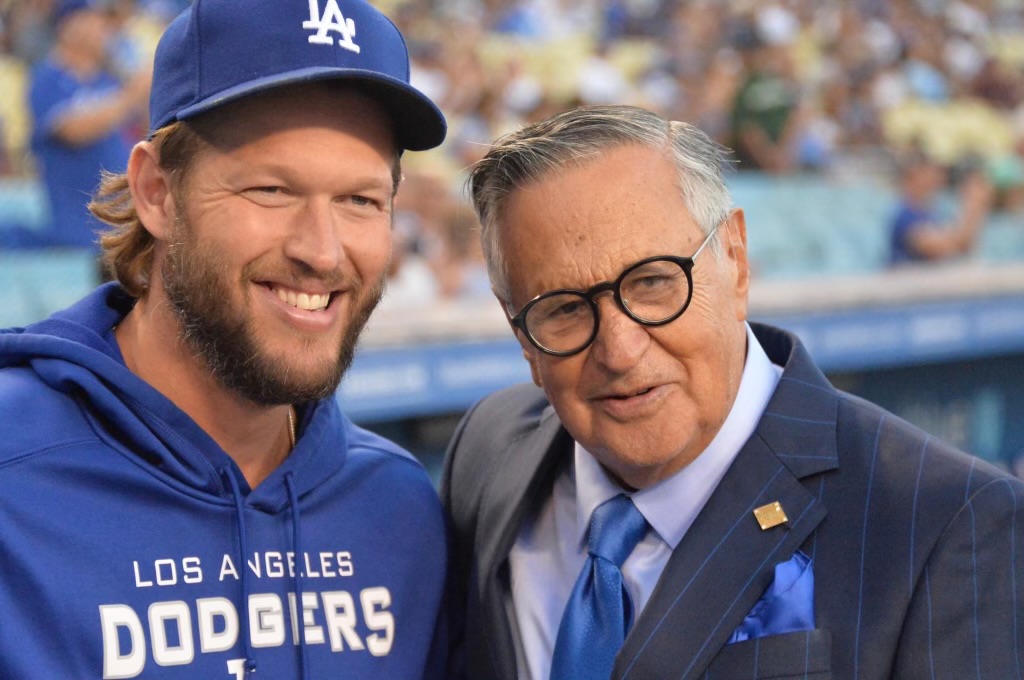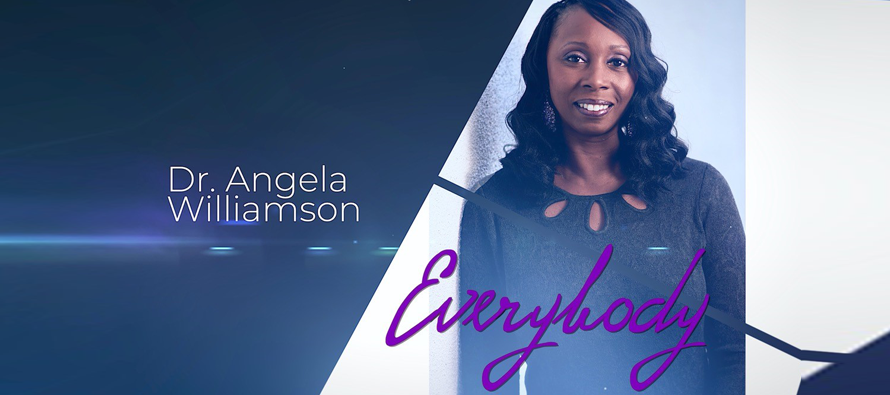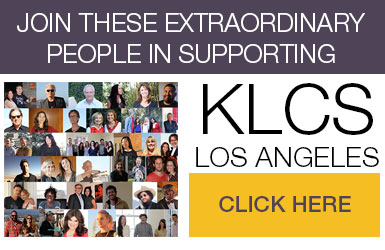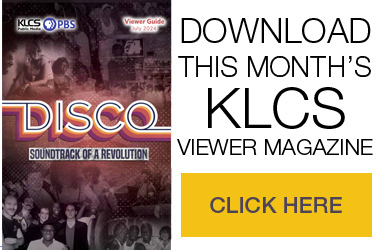When “Roadfood: Discovering America One Dish At A Time” debuted, it was less cooking and more of a travel show talking to people about culture and local issues through food. It may be the only PBS food show hosted by an established actor like L.A.-based Misha Collins. He literally could break bread with people holding different viewpoints and ideologies, at a time when food and eating seems like the one place people can come together. We spoke to Executive Producer Cliff Sharples about the journey to creating this show, what his Julia Child connection is, when we can expect Season 2, and his favorite place to eat in Los Angeles.
Cliff, how did “RoadFood…” come about?
I had a company called Fexy, which my wife Lisa and I started, we’re both digital media executives, we’ve done a lot of start ups, taken companies public, sold a bunch of companies, a lot in the food world. So, 10 years ago we started a roll-up called Fexy; it started in the food space and there was a body of work called RoadFood. And RoadFood is a very cool guidebook that was started by a couple named Jane and Michael Stern in the early ‘70’s. And the two were credited as the pioneers to really hit the road and discover the American food scene. Their interest was almost less about food and more about the conversations and local culture that they got introduced to through the food. RoadFood went on to be a New York Times best seller, they won five James Beard awards, they’ve written 50 books together. A really storied career and then in 2017, maybe, the Smithsonian Institute took all their life’s work and put it into the American History Museum. So my wife Lisa and I bought RoadFood with the intention that we really felt like it was such a cool concept, and we wanted to figure out how to translate that to the next generation. We created a website and built up the directory and we had an idea, maybe three years ago, that we really thought the way to bring this to the next generation was through a television show. So, we created this concept “RoadFood: Discovering America One Dish at a Time.” We were acquaintances with Misha Collins, he turned out to be the host for Season One. What really attracted us to Misha as an ambassador for this concept, fascinating backstory – he grew up homeless, he was incredibly smart and gifted. He got a full ride to a New England prep school and then went to the University of Chicago. He thought he was going to go into politics, he interned for the Clinton White House. But through that process got a bit disenfranchised with the kind of people that want to get into politics and felt like that wasn’t his people. He had done some acting in college, so he thought, “I’m going to move to Hollywood, I’m going to get a lot of followers and becomes famous and incent my fanbase to do good things.” Basically, that’s what he did. Ten years later, he got on a show “Supernatural,” a very long-running show, it ran for 15 seasons. But what he really did right was he latched onto social media early in his career, he has over 12 million followers today. He created a nonprofit, “Random Acts” that does work all around the world. Just a few days ago, he sent me a picture, he’s in Ukraine with Zelensky. He jumps right into this world. He really wants to make the world a better place. Some of the early conversations with him, his politics are very liberal but he recognizes it, as we talked and we were conceiving the show – we’re so focused on our differences in America and everything is pulling apart, the left and the right. We really feel like the opportunity here is to realize we’re all in this together and we should look for our commonalities, and common ground. That became part of the DNA for this show, where we use these local dishes to uncover local regional culture and stories, but really deliberately go into places to have conversations with a diverse group of voices. Let’s go to blue states where there’s a red pocket, red states where there’s a blue pocket. Let’s talk to people on the coast and in rural Midwest. People of color, women, we very deliberately created a pretty diverse set of 13 episodes and use local food as the vehicle. Break bread with people. Food is one of the last things left that isn’t politicized that we can actually all agree on and get together. And really the result was so outstanding, I went on all the shoots, I was the executive producer. My wife and I conceived of the show and then I was heavily involved in bringing it to life, found Misha, got the director, pulled everybody together and then went on the journey. Honestly, I had never really been that heavily involved as an executive producer in a show, so I didn’t really know what I was doing. And I think none of us did. We were all doing this unscripted documentary with not a lot of experience in unscripted documentaries. The result I think speaks for itself; we got nominated for an Emmy, we won a bunch of other awards, the audience loved it.
The first time I saw it, the intro confused me, because I wasn’t sure what Misha’s connection was to the two authors and I wondered if they were still around.
They’re both in their 70’s, they’re no longer driving around the country. He’s met the Sterns now, he didn’t have a previous connection, it was more us saying, “How are we going to bring this to the next generation?” While we are really respectful and love everything the Sterns did, we’re interpreting it for the next generation. But at the end of the day, what we’re doing is not dissimilar to what the Sterns did. When they would go to small town in the middle of nowhere, one of the first things is they would figure out was where the police and firemen ate their breakfast. Then they would go to that café, and they would meet police and firemen. They would hang out and learn how that town worked, what that local culture was and why this dish was important. They considered themselves anthropologists. We love that, and that’s a lot of what we did. We had this map when Misha, my wife, Lisa Sharples, and I were originally ideating this, we got a giant map of the Unites States and we just wrote “Empathy” across the top, because that was the central theme. How to build empathy for people in other shoes. If you demonize the left or the right, we’re never going to come together. You have to build empathy and understanding. Misha was together with this mayor of this tiny little island in Virginia, Tangier Island, which is going to be the first town in America that’s going to sink with global warming. This entire town voted for Trump, the mayor met Trump, but we all had a great day. There was respectful conversation and they talked about how we all had a great day. They talked about how when Trump met the mayor, the mayor got death threats from around the country, and people telling them they hope everybody in the town sinks and dies. They had a good conversation about how that’s awful; everybody can agree about how that’s awful. There’s moments like that in the show that really made it all worth it.
So Misha was the host you had in mind? I think he may be the only mainstream actor in a PBS food show.
Yeah, I hadn’t thought about that. PBS obviously has super famous people, chefs and such. He’s not a chef. That’s the interesting thing about this, even though we found fantastic food all around the country, we don’t talk about chefs, we talk about cooks. We don’t talk about cuisine; we talk about food. We really do love it. The filter that we use is that we like to go to local, independent, or small chain establishments. It’s not fancy, it’s roll up your sleeves kind of food that’s telling a story about an area. The episode in Barberton, Ohio is a good example of this random town that’s been forgotten by the Rust Belt, which is a whole Rust Belt story. A disenfranchised population where they’re struggling. Originally it was a boom town for industrial manufacturing, and there’s a big immigrant population from Serbia that came in. So there’s these giant restaurants called “chicken houses,” which is this friend chicken and I think everybody in this town eats this three to four times a week. And it’s really good and really different. But it’s so random, so that’s the food story side of it.
How has the show been received?
Super positively. We got so many people across the spectrum send in comments on all of our social media, through IMDB and Rotten Tomatoes. It got rated super high and what we loved about it was – people got it. They got the empathy concept; they got the breaking bread and more about what we have in common than we have apart. And they love the quirky dishes and travel. It worked, it resonated and people understood what we were trying to do. Which is great. We got this award that’s so random, I didn’t know what it was. The Catholic church has this long-running film and TV award for shows and films that showcase community, empathy, understanding, diversity. We won this award, and I was like, “That’s so cool.” I’m not religious myself, but that’s cool. We won a couple of Tellies, and were nominated for an Emmy, which is great. It’s nice and I think the Emmy was recognizing [the show] for culture and for the culinary aspect, which was great.
Do you have a favorite moment, place or food from the show?
There’s a lot. The eastern shore of Virginia, where we went to a big oyster roast with a multigenerational family and roasted oysters; that was amazing. Chicago was another place, we went to the South side of Chicago, and learned all about Aquarium barbecuing, which is the weirdest thing in the world, right? Which is smoked barbecue and they do it in these giant aquariums. It only exists in the South Side of Chicago. We met some wonderful people. And that’s also where Misha went to school so it meant a lot to him. So that was another great moment.
What was your path to getting this show on PBS? Everyone I talk to about their shows mentions sponsorship; I remember you had a commercial sponsor, an iced tea company.
Yep, we had Gold Peak, Allied Financial and Bounty paper towels were the three sponsors for RoadFood Season One. We have this relationship with GBH out of Boston, the largest producer of public television content. They do the big shows like…
Julia Child!
Exactly. They’re a really storied studio. We have another television show, “Moveable Feast,” it’s about to go into Season 10. So we’ve been doing that with GBH for a long time. It started with “Fine Cooking”, and “Fine Cooking” got sold so they didn’t do anything with the TV show, so Fexy picked up “Moveable Feast,” which introduced me to GBH. And then I came to GBH with this idea around RoadFood, and they were like, “We love this, let’s do it.” It’s really been a great partnership. We’re collaborating on a couple of other new projects as well. We really love working with public television.
What’s your average day now, since you’re not on the road with the show?
We’re about to go on the road in two weeks with “Moveable Feast.” Fexy Studios had these two shows. M wife and I sold Fexy to the Arena Group in January of this year. So now I’m building out Arena Studios. Arena owns Sports Illustrated, Parade magazine, Men’s Journal, Surfer, Bike, Power, The Street. So we’re building concepts now across Arena. As an executive producer, you’re looking at projects, some for our internal team, a lot of it is working with partners and finding projects that make sense. And the other half of my life is getting them funded. (laughs) It was such a great experience being on all of the shoots for RoadFood. Moveable Feast I don’t go on as many because I have a great person on my team who was the original creator of Moveable Feast. It’s like anything, if you’re involved in a creative craft on the business side, you still need a finger, I think, in the creation. It makes you do a better job on the business side, so I always want a connection to the production side of it and the creative side. My whole background is as an entrepreneur. I’ve had my own company for decades. So now I’m kind of having an intrapreneur experience for the first time at Arena, but it’s fun. Sports Illustrated is such an iconic brand. All of it’s a little like RoadFood, where we’re trying to figure out how do we make this relevant to the next generation. What’s timeless is great storytelling, but how you tell those stories changes. It used to be in print, of course video, there’s TV, increasingly it’s 30 seconds on Tik Tok, it’s always changing and I think that’s what makes it fun.
Do you know when you might go back and do another season of RoadFood? If so, when and what will the new season include?
We are working on Season Two now. The hope would be it would launch late 2023 or first half of 2024, but we are now in pretty detailed pre-production, planning out new episodes. There’s stories everywhere. We didn’t spend as much time on the West Coast in Season One, and we spent a little time in the South but not a lot. Part of it is to get some geographical diversity and then looking for new dish stories. We call them “dish stories” – what would be a great dish in a given area. There’s and interesting Argentinian-Peruvian dish that’s made its way into Miami culture, because there’s a big immigrant population. Typically you think Miami, you think Cuban but we’re for the not obvious, the new trends. Houston was another example, in Season One, where it was an amazing, amazing moment, where we dove deep into the Vietnamese community, which is the second largest Vietnamese population in the United States. I have two sons adopted from Vietnam and spent a lot of time in Vietnam and had some of the best Vietnamese dishes in Houston that I’ve had anywhere and who would have ever thought that? It’s really fascinating.
I liked the Native American episode, where the woman cooked a bunch of little dishes in her kitchen, and he ate the cactus.
Yeah, that was another amazing episode and really intense. We spent a couple days on a reservation and there was footage we actually didn’t use because it got too intense. We all hear of stories and you read about how Native Americans, we treated them awfully and now they’re on reservations. But then when you actually spend time with the people, it’s like with anything, you hear these personal heartbreaking stories, it’s devastating. That was a heavy shoot. We were pleased with the balance that we got out of it.
What’s your favorite part of your job? Because you go on the shoot as well as not just being an executive producer. Is it the food, the putting together the shoot?
I think, it’s because I’m an entrepreneur, that the job of an executive producer, which can be different depending on the project. But for me, that experience was so fun because I love the creative aspect of coming up with the idea, and then working with a diverse set of talented, creative people to shape that idea and change it and make it their own, and there’s all these threads that have to come together. Just like if you’re starting a company, everyday you’re thinking this is never going to work, it’s never going to line up. And I think there’s luck involved, honestly, when all the things align. But when they do, you’re like, “It’s amazing!” So getting RoadFood off the ground was really hard, there were a lot of times where we didn’t think it was going to happen. And it all worked out, the pieces came together. Creatively, from a business perspective and a business perspective, I really enjoyed it, orchestrating that. That’s what I love to do.
So far everyone’s had a Julia Child story, or that she was an influence. Because you’re with GBH, do you have a Julia story?
I obviously have always known about Julia Child, but because Fexy owned RoadFood when the Smithsonian Institute curated the Stern’s RoadFood collection. There’s a big food history section at the National Museum of American History in Washington D.C., and they have her entire kitchen. So we spent a lot of time with the curators that curated a lot that and I learned a lot about that and appreciated more about Julia Child. Another fun fact of where I’ve landed is that “Parade,” which the Arena groups owns, the first culinary editor of Parade Magazine was Julia Child. Pretty cool, right?
Wow, I didn’t know that. She really gives me a lot of hope; her life, she started her culinary career in her 50’s. It gives people hope.
Yeah, I feel like kind of at the top of my game creatively. And I’m like entering a bit of a new chapter, I’m working in the film and TV business, which is not where most of my career was. So it’s really fun for me.
Do ever just pinch yourself you get to do this for a living and follow in Julia’s footsteps of educating people about food and traveling on PBS?
Totally. When we launched RoadFood, it was really like “Wow!” We took an idea and brought it all the way to the screen and brought it to life, and we were proud of it. That was really a cool moment and a lot of my career digitally was around food. My wife was CEO of AllRecipes. It’s still the largest recipe site in the world.
I thought Allrecipes was a free website where people shared their recipes.
There’s a huge editorial staff. It was started before social media, it is user-generated content, and it became a mega-site, it’s in 23 countries. She sold that to Meredith Corporation. So when we started Fexy, our idea was, since Allrecipes was created, we had social media, so user-generated content became less in vogue and millennials, and younger, gravitated back to experts, and real sources of information. We were interested, with Fexy, to start a new portfolio of food brands that really drove the trends, culture and conversations around food with the millennial and younger generation. We bought RoadFood, “Serious Eats,” and “Simply Recipes.” And both of those sites became top 10 recipe sites and during the pandemic we got an offer we couldn’t refuse from Dotdash Meredith to buy the two food sites. Both of us love food and it’s such a privilege. And what I love about it is it changes, every generation has a different relationship with food. And thinking about that and how we’re now in a world where it’s all about influencers, it’s a whole new genre. One of the things we’re doing at the Arena Group is redefining what “chef” is. “Moveable Feast” for example, is a show that highlights a lot of great chefs. And the prototypical chef is somebody who owns a restaurant, maybe they won a James Beard award. But when you think about Tik-Tokers, with millions of followers, that aren’t trained at all. Are they food influencers? They absolutely are. And then the Sterns, the same thing with RoadFood, we don’t talk about chefs, we talk about pitmasters, and cooks, and home family restaurants, that really are people’s living and dining rooms that have been opened up into restaurants. So, really widening how we think about chefs. And let’s face it, the traditional chef competition shows, Food Network, it’s pretty dominated by white men. Really widening the diversity of that as well, is something that we’re really passionate about at Fexy and now we’re doing the same thing at Arena. I’m taking that to Arena, we want to tell more diverse stories. It’s interesting, there’s a genre of food blogs, oddly a lot of the biggest food bloggers, they all live in Salt Lake City. It’s the most bizarre thing. There’s a huge community of food bloggers in Salt Lake and they’re all white. So, you might get a recipe for Pho or enchiladas, and the search results are dominated by people that don’t have ties to that. At Fexy what we really tried to do is find bloggers and chefs that maybe weren’t the biggest, but they were authentic. Authenticity is a big thing we look for as well.
When you were in L.A., do you have a favorite place to eat?
L.A. was an interesting one, because we were highlighting açai bowls and vegetarian cuisine. It was the only non-meat somewhat-healthy food that we focused on. L.A. obviously has amazing food. I absolutely loved Travel Café in Echo Park, it was amazing, When Michael Stern wrote about it in RoadFood, he called it a “café on a mission.” Healthy food for the masses is a religion there, and they have this massive menu, super extensive menu, it’s dizzying. Love that place, you should definitely check it out.
Roadfood airs on KLCS’ Create TV, Sundays at 2:30 PM. Visit: klcs.org/schedule for a complete listing of air dates/times. You can learn more about the show on their website: roadfood.com/tv or follow Roadfood on Instagram (@roadfood) or Facebook (@Roadfood). You can follow host Misha Collins on his social networks as well: Instagram (@officialmisha) or visit his linktr.ee (mishacollins).

